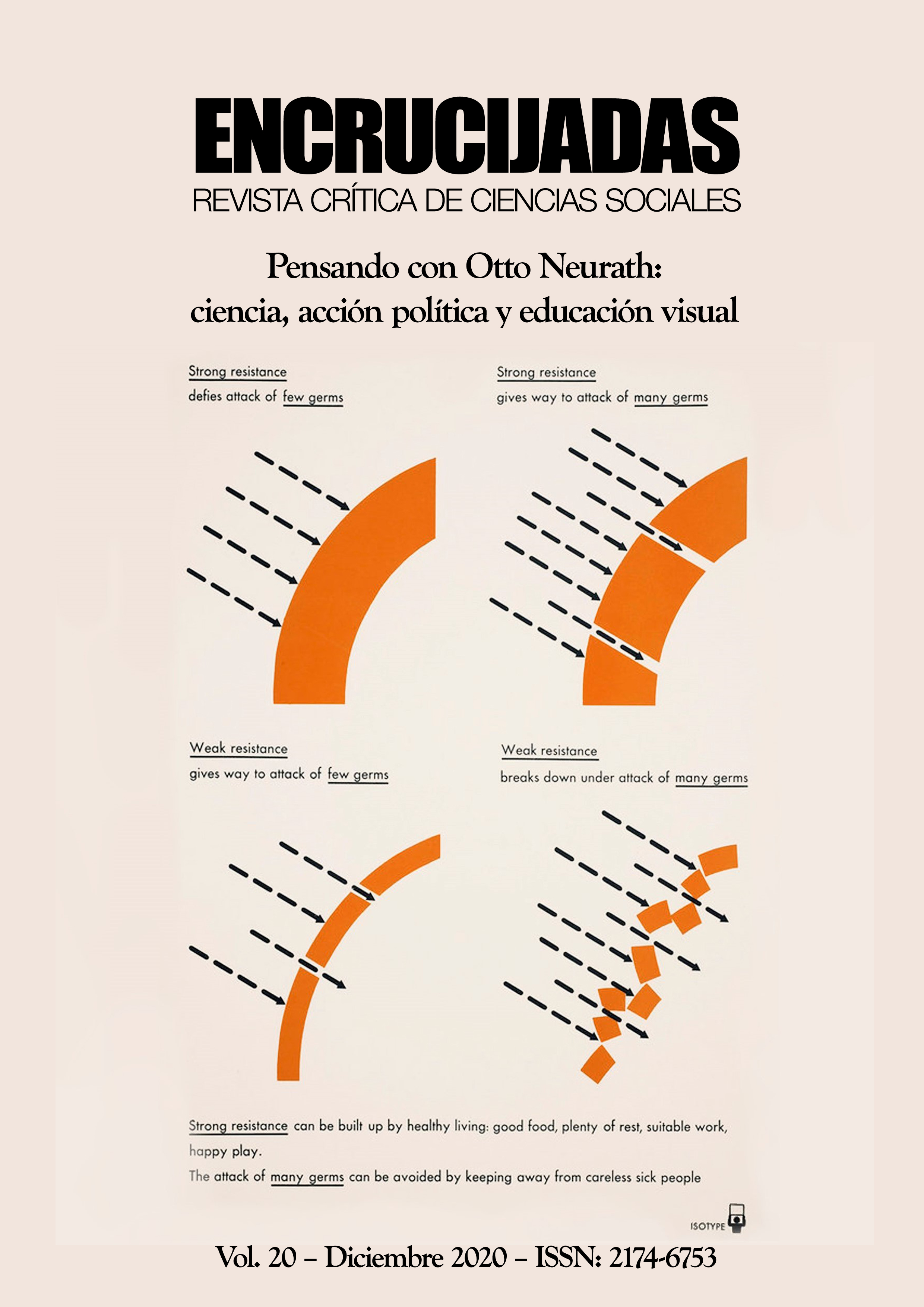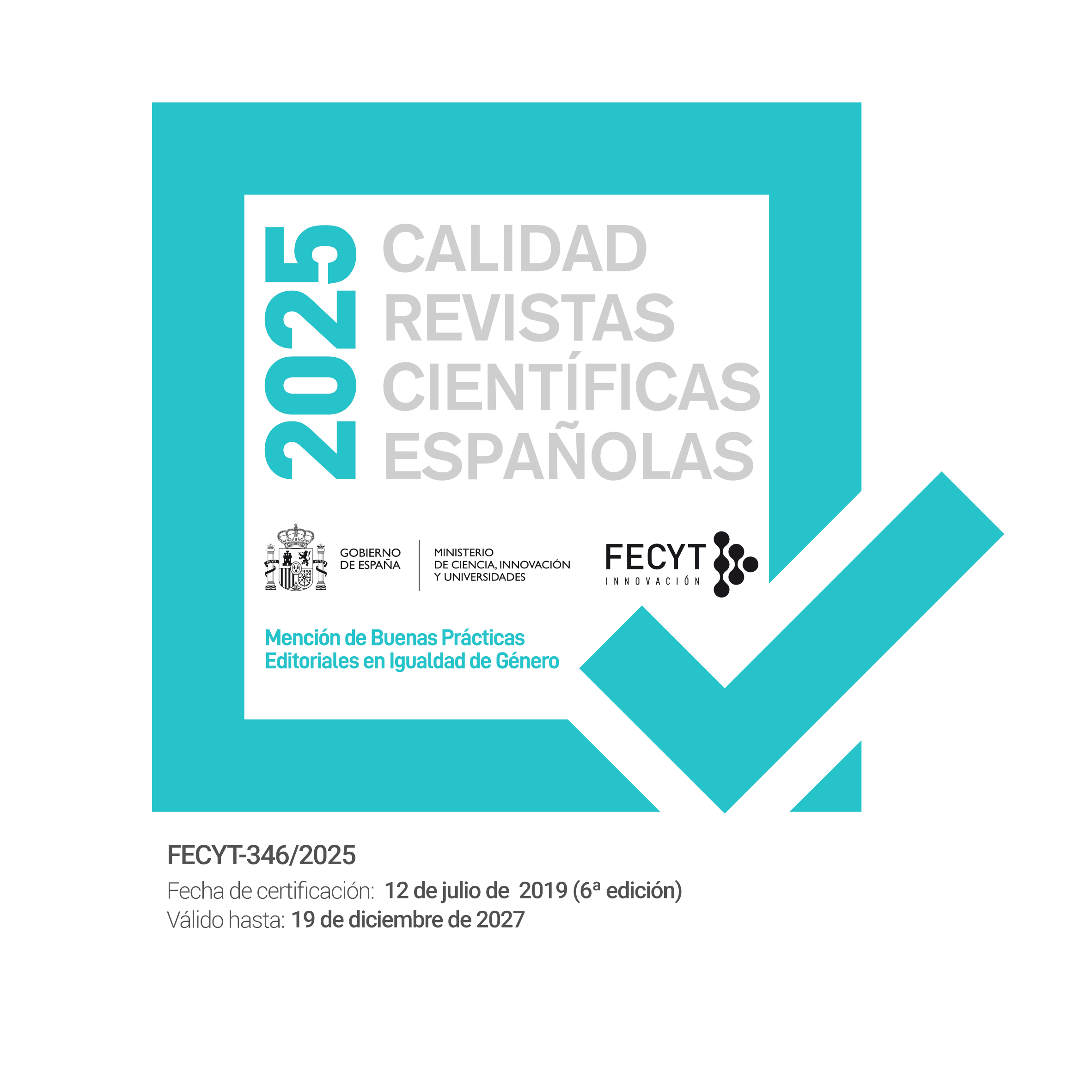Otto Neurath: a classic of emancipatory thought
Keywords:
Neurath, ISOTYPE, Critical Theory, Positivism, Philosophy of ScienceAbstract
Otto Neurath's thought is located at the crossroads of some of the main problems faced in the short 20th century. Most of them still reverberate strongly today. However, he’s practically a stranger to many of our contemporaries in the social sciences. In this article, besides publishing this monographic, we explain his biography and main scientific and philosophic works and how they’re connected with each other. Therefore, the main reason to modify this monographic around his thought is no other than to provoke a further reflection in the spanish language and around the intellectual legacy. This monographic is formed by four axes. The first one revolves around the interpretation of Neurath's position -as philosopher of science, critic of the inherited tradition- around the controversies of positivism and the critical theory. The second axis elaborates Neurath's imprint on the development of green economy, through the reading of his developments on the fiction of commensurability or economistic fetishism. Thirdly, concerning his work as a promoter of practices for the democratization of knowledge (mainly through the ISOTYPE system). Finally, we explore little-trodden paths about his reception in Spain, from the award-winning infographics section of the now vanished newspaper Público (in print) to the philosophy of Francisco Fernández Buey and Manuel Sacristán.
Downloads
References
Anderson, Perry (1979). Consideraciones sobre el marxismo occidental. Siglo XXI.
Barck, Karkheinz (2011). The Neurath–Horkeimer-Controversy Reconsidered: Otto Neurath’s Erwiderung to Max Horkheimer’s Attack Against the Vienna Circle. En J. Symons, O. Pombo, J. Torres (Eds.) Otto Neurath and the Unity of Science. Logic, Epistemology, and the Unity of Science (pp. 31-40). Springer.
Burke, Christopher y Sue Walker (Eds.) (2013). Isotype. Design and contexts 1925- 1971. Hyphen.
Cartwright, Nancy, Jordi Cat, Lola Fleck y Thomas Uebel (1996). Otto Neurath. Philosophy Between Science and Politics. Cambridge University Press.
Cat, Jordi y Adam Tamas Tuboly (Eds.) (2019). Neurath Reconsidered. New Sources and perspectives. Springer.
Cat, Jordi (2021). Otto Neurath. En Edward N. Zalta (ed.) The Stanford Encyclopedia of Philosophy (Spring 2021 Edition). <https://plato.stanford.edu/archives/spr2021/entries/neurath/>
Broncano, Fernando (2020). Conocimiento expropiado. Epistemología política en una democracia radical. Akal.
Ferández Buey, Francisco (1988). Sobre la universidad, desde Ortega y Sacristán. Mientras Tanto, 34, 19-38.
Fernández Buey, Francisco (1990). Como marineros que han de reparar su nave en alta mar. Notas editoriales. Mientras Tanto, 43, 12-17.
Fernández Buey, Francisco (1991). La ilusión del método: ideas para un racionalismo bien temperado. Crítica.
Hochhäusl, Sophie (2014). Otto Neurath and the politics of orchestation. Visions Carto, 28 de mayo <https://visionscarto.net/neurath-politics-of-orchestration>
Horkheimer, Max [1937] (1999). The Latest Attack on Metaphysics. Critical Theory: Selected Essays (pp. 132-187). Continuum Press.
Neurath, Otto [1925] (2005b). Socialist Utility Calculation and Capitalist Profit Calculation. Otto Neurath Economic Writings Selections 1904–1945. Vienna Circle Collection, vol. 23. Springer.
Neurath, Otto [1925] (1973). From Vienna Method to Isotype. En Marie Neurath y R. S. Cohen (Eds.) Empiricism and Sociology. Vienna Circle Collection, vol 1 (pp. 214-248). Springer.
Neurath, Otto [1926] (1993). La viena Roja. Mientras Tanto, 54, 97-107.
Neurath, Otto [1937] (2005a). Inventory of the Standard of Living. Otto Neurath Economic Writings Selections 1904–1945. Vienna Circle Collection, vol. 23. Springer.
Neurath, Otto [1933] (1973). Museums of the future. En Marie Neurath y R. S. Cohen (Eds.), Empiricism and Sociology. Vienna Circle Collection, vol. 1 (pp. 218-223). Springer.
Neurath, Otto [1944](1973). Fundamentos de las ciencias sociales. Taller de ediciones JB.
Neurath, Otto (2010). From hieroglyphics to Isotype a visual autobiography. Hyphen Press.
O'Neill, John (1995). In partial praise of a positivist. The work of Otto Neurath. Radical Philosophy, 74, 29-38.
O'Neill, Cathy (2016). Armas de destrucción matemática. Cómo el Big Data aumenta la desigualdad y amenaza la democracia. Capitán Swing.
Pinedo, Manuel y Neftalí Villanueva (2020). Epistemic de-platforming. En D. Bordonaba, V. Fernández Castro, J. R. Torices [Eds.], The Political Turn in Analytic Philosophy. De Gruyter.
Reisch, George (2005). How the Cold War Transformed Philosophy of Science: To the Icy Slopes of Logic. Cambridge.
Sarrión, José y Salvador López Arnal (2012). La metodología de las ciencias sociales en Manuel Sacristán y Francisco Fernández Buey. Encrucijadas. Revista Crítica de Ciencias Sociales, 4, 30-55.
Uebel, Thomas (2005). Introduction: Neurath’s Economics in Critical Context. Otto Neurath Economic Writings Selections 1904–1945. Vienna Circle Collection, vol. 23. Springer.
Uebel, Thomas (2008). Calculation in kind and marketless socialism: On Otto Neurath's utopian economics. The European Journal of the History of Economic Thought, 15 (3), 475-501.
Vossoughian, Nader (2008). Otto Neurath: The Language of the Global Polis. Nai010 Publishers.
Wallace, Rob [2016] (2020). Grandes granjas, grandes gripes. Capitán Swing.
Downloads
Published
How to Cite
Issue
Section
License
Copyright (c) 2020 Encrucijadas. Revista Crítica de Ciencias Sociales

This work is licensed under a Creative Commons Attribution-NonCommercial-NoDerivatives 4.0 International License.
Los autores/as conservan los derechos de autor y ceden a la revista el derecho de la primera publicación, con el trabajo registrado con la licencia de atribución de Creative Commons Reconocimiento-NoComercial (CC-BY 4.0), que permite a terceros utilizar lo publicado siempre que mencionen la autoría del trabajo y a la primera publicación en esta revista. Encrucijadas permite y se anima a todas las personas autoras a depositar la versión final publicada en repositorios institucionales o temáticos de acceso abierto, cumpliendo en caso necesario los términos establecidos por la entidad financiadora de la investigación.





